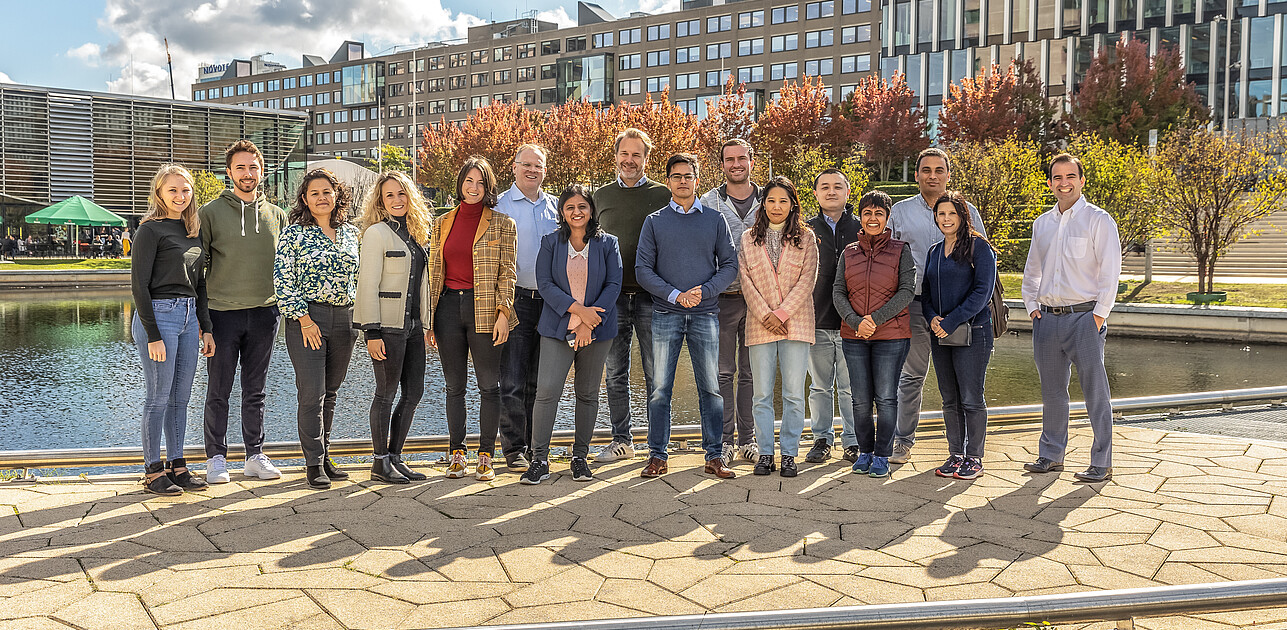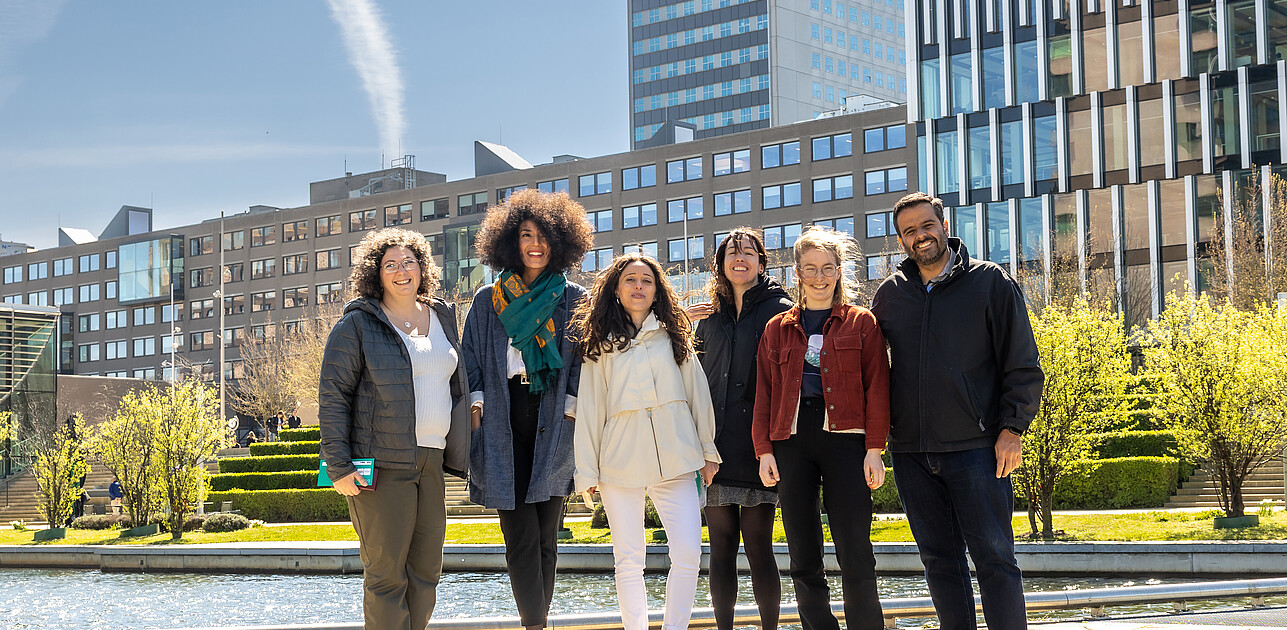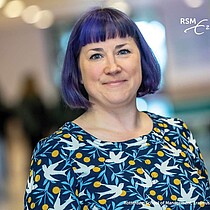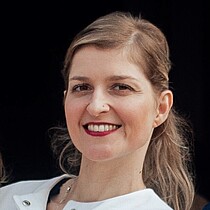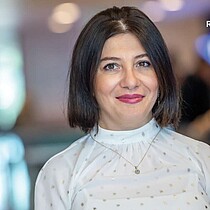Why this programme
Joining the Part-time PhD programme at RSM gives you
- access to cutting-edge research in a vibrant academic community
- the opportunity to publish parts of your PhD thesis in top international managerial or academic journals, and present your work at scientific conferences
- an internationally recognised PhD degree from one of Europe’s leading business schools resulting in prestige in both the corporate and scientific worlds
- a range of specialisations that reflect important and widely-applicable topics in business and industry such as logistics and information systems, strategy and entrepreneurship, marketing, finance and accounting, and organisation and leadership
- a large and highly active international network of alumni and corporate relations
Why RSM?
Rotterdam School of Management, Erasmus University (RSM) is a leading European business school, ranked consistently among the top three business schools in Europe for research and 17th worldwide. RSM provides ground-breaking research and education furthering excellence in all aspects of management and is based in the international port city of Rotterdam – a vital nexus of business, logistics and trade. RSM’s primary focus is on developing business leaders with international careers who carry their innovative mindset into a sustainable future thanks to a first-class range of bachelor, master, MBA, PhD and executive programmes. RSM also has an office in Chengdu, China. Highlights of RSM’s cutting-edge research in business and management can be found at www.rsm.nl/discovery.
Curriculum
The five- to six-year programme has eight modules, each of three or four consecutive days based in Rotterdam. They cover a broad range of theoretical foundations and practical skills. All modules are taught in English. Your PhD thesis will also be written in English, according to international academic standards.
Programme schedule
- Year one: four residential modules cover research methods, skills and foundations, and writing your research proposal
- Year two: a residential module covering field-specific specialisations, master classes, and a ‘back to campus’ module for PhD candidates to present their work.
- Years three and four: a ‘back to campus’ module
- Year five and six: ongoing writing of the dissertation
Schedule year 1, 2023/2024
Module 1.1 25 - 29 September 2023
Module 1.2 27 November - 1 December 2023
Module 1.3 12 - 16 February 2024
Module 1.4 20 – 24 May 2024
Schedule year 2, 2023/2024
Module 2.1 13 – 17 November 2023
Module 2.2 23 – 26 April 2024
Schedule year 3, 2023/2024
Module 3.1 23 – 26 April 2024
Schedule year 4, 2023/2024
Module 4.1 23 – 26 April 2024
Admission
For admission to the Part-time PhD programme at RSM, you must
- be in a relevant discipline with a strong interest in research, willing to combine the Part-time PhD Programme with your full-time or part-time job.
- have a strong interest in research and proven track record that includes excellent study results, or writing and publishing white papers, articles or other work.
- hold an MSc degree in a relevant discipline. If you hold an MBA and have written an MBA thesis to complete it, you may be eligible for the programme as well. In case of doubt contact the PT PhD Office (ptphd@rsm.nl)
- have proof of proficiency in English (see below)
In addition to these formal requirements, candidates will be selected according to excellence. Your CV, motivation, research ideas, and if applicable, your reference from your future supervisor or supervisors will be taken into consideration.
The Admissions Committee may also ask you to take a GMAT test as part of the evaluation process.
RSM requires that candidates whose native language is not English have to submit scores of the TOEFL/IETLS test. RSM requires a TOEFL score of at least 100 on the internet-based test and 600 on the paper-based test. For the IELTS, the minimum overall band score required by RSM and ESE is 7.5; furthermore, the language test results should not be older than 2 years. If you are a native English speaker, or if the language of instruction of your entire university education (bachelor and master programme) was English, you may apply for a TOEFL/IELTS waiver.
Tuition
The programme fee is € 10,000 per year for the first two years, € 7,000 for year 3 and 4, and € 6,000 for each subsequent year, up to a maximum of €46,000.
These costs cover your admission to courses, tuition, coaching and supervision, your access to RSM’s research facilities, the cost of design, layout and printing for your PhD thesis, and the support of our communications team, for example to publicise your research findings to the corporate world and appropriate media.
A small number of tuition fee waivers will be considered in exceptional situations, where academically excellent candidates are not able to financially sustain program participation from their own resources. Waivers are granted for the duration of one year only. Decisions on the continuation of grants are taken on an annual basis and are contingent on study progress, need for financial support, and available budget.
Candidates who wish to apply for a tuition fee waiver need to indicate this during their application or, for enrolled candidates, at least two months prior to start of the academic year. Waiver requests need to accompanied by a credible demonstration of financial necessity. This includes evidence of own income and the impossibility to obtain external financial support, such as a contribution from the employer or a research scholarship.
The application deadline for the 2024 round of our programme has passed. We will not accept any more applications. We would like to invite you to apply for next year’s cohort in January 2025.
How to apply?
Please have a look at our PhD project descriptions structured by research areas which you can find here. Applications can be submitted in our application portal which will open on January 10th 2025 and closes on the 15th of March 2025. An application should consist of the following documents:
- A motivation letter that refers to a research area specified in our open projects. Please sketch your background, research idea and intended research approach, and clearly relate it to one or several of the topics described in the research area of your choice. The additional submission of a research proposal is optional (see point “proof of writing” below).
- A brief research statement (one page suffices) in which you outline the type of research questions that you intend to study and the type of methodologies that you intend to employ. You may broadly sketch your interests or be specific about concrete research questions that you envision answering. You may also explain whether (or not) you intend to utilize data from your current employer and/or work on research questions related to your current profession.
- A proof of writing in English language. The purpose of this document is to demonstrate that you are capable of writing academic texts in English. This can be, for example, a chapter of your Msc or MBA thesis, a paper, or a research proposal for your intended research.
- Proof of English, i.e. the results of a TOEFL or IELTS test not older than two years
- BSc and MSc or MBA diploma + grade lists (for both)
- Curriculum Vitae
- Optional: if you have already been in contact with RSM faculty who would be willing to supervise you if you are accepted to the program, please add a letter of recommendation from your intended promotor at RSM
- If you need to apply for a scholarship due to financial hardship please add an additional document containing:
- The statement that you cannot pay the tuition fees from own resources
- A summary of other funding opportunities (e.g., employer contribution, scholarships outside of RSM etc) that you have explored so far
The Admissions Committee may also ask you to take a GMAT test and/or to submit additional documents as part of the evaluation process.
What is a research proposal?
A research proposal is a written ‘plan’ for the research that you want to conduct as a PhD student.
Most research proposals start by briefly sketching the broader context in which your research is embedded and by highlighting its relevance.
A good research proposal, however, then manages to narrow down the focus to one or several approachable research questions: these are the questions that you plan to answer in your research.
Thirdly, your research proposal should give insight into the methodology that you plan to use, that is, you explain how you plan to answer your research question. This includes data collection and access. If you have access to data or information, due to your day job or network, that will help you in answering your research questions, you can mention this in your methodology.
Fourthly, in your research proposal you demonstrate that you are aware of the state of the academic literature regarding your research topic, and, if it is practice-related, of the state of the art in practice. You do that by including a literature review and a review of practice.
In summary, a good research proposal shows that:
- you have relevant and innovative ideas about your research topic;
- you know and understand what is already known and have identified a ‘gap’;
- you aim to address with your research;
- you have an executable plan;
- you are the right person to execute it.
Towards the end of the first year of the part-time PhD programme, we expect all PhD candidates to have a good research proposal.
During your application to the programme, you can attach a research proposal as ‘proof of English writing’ but it is not required. If your research ideas are not yet concrete enough to write a good research proposal, it is sufficient to sketch them in your cover letter and attach a different document as proof of English writing (for example a Master or MBA thesis, a report, or a paper).
Please be aware that acceptance to the programme does not imply ‘acceptance of the research proposal’. Most likely your supervisory team will challenge you to improve and change it during the first year in the programme.
In general, a research proposal is never ‘set in stone’. Research plans may and will change while the research progresses (also after the submission of the proposal at the end of programme year 1).
PhD candidates
Rotterdam School of Management, RSM University hosts approximately 100 Part-Time PhD candidates from a great variety of professional and academic backgrounds. If you are curious about their motivations and experiences, read their testimonials in the “Testimonials” section.
Would you like to become one of the new candidates, starting in September 2025? See our admission criteria in the “Admission” section and find out how to apply in the “How to apply?” section.
Find all current Part-Time PhD candidates in each of the following departments below.
A&C: Accounting and Control

BSM: Business Society Management
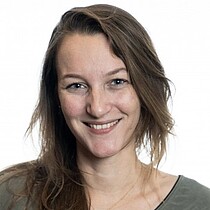
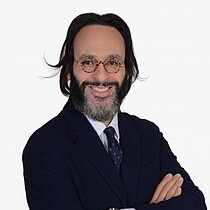

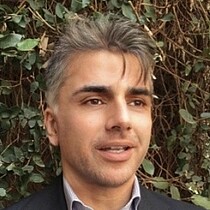
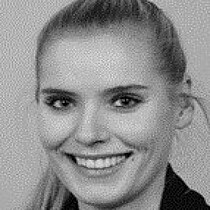
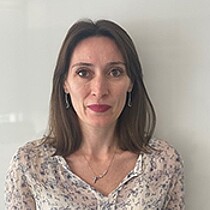
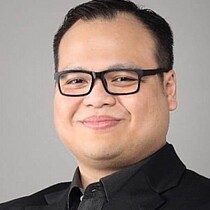
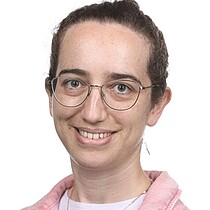
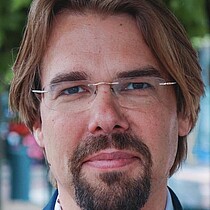
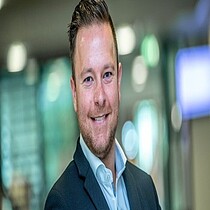
Finance
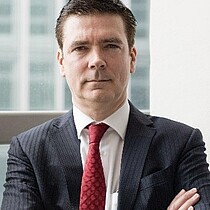
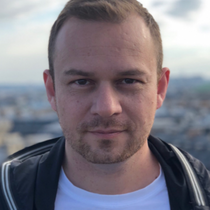
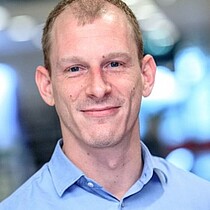
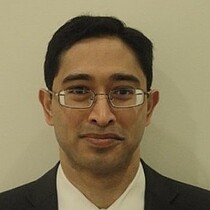
Marketing Management
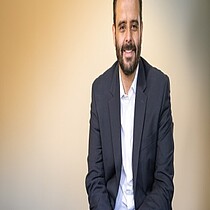
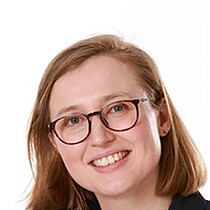
OPM: Organisation and Personnel Management
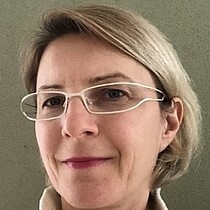
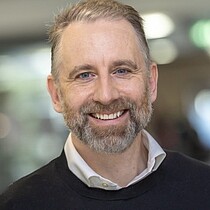
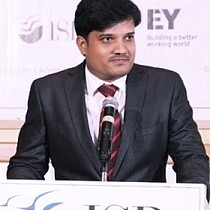
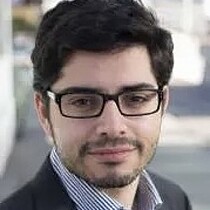
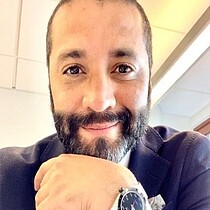
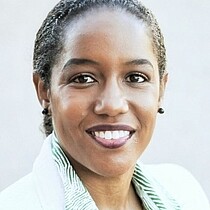
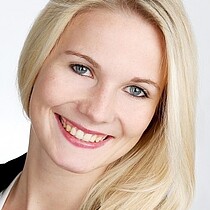
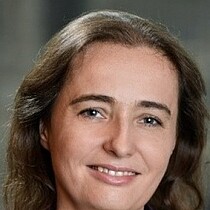
S&E: Strategic Management and Entrepreneurship
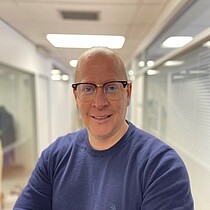
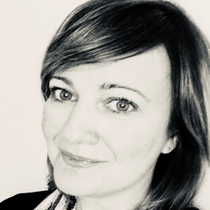
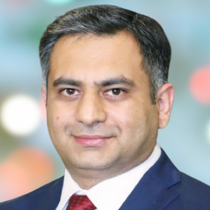
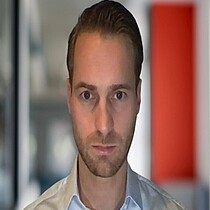
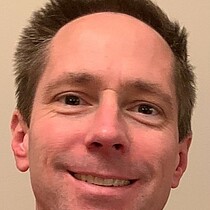
TOM: Technology and Operation Management

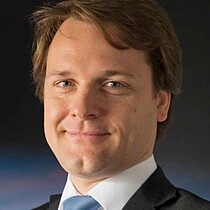
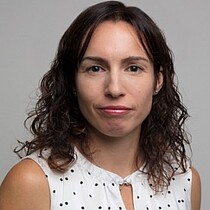
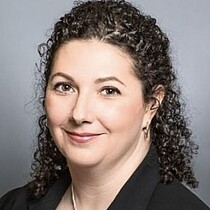
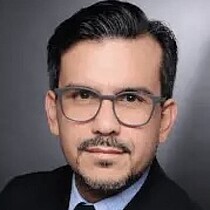
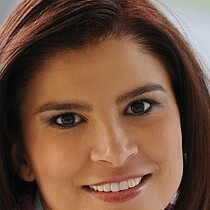
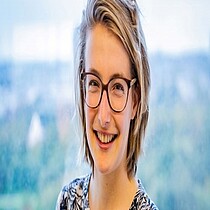
Testimonials
Find out why our current participants are enthusiastic about the Part-time PhD programme in the "PhD candidates."
Would you like to become one of the new candidates, starting in September 2021? See our admission criteria in the "Admission & Tuition" section and find out how to apply in the "How to apply?" section.
Ana Maria Sierra Maya
Why did you choose the RSM part-time PhD program?
I chose the RSM part-time PhD program because I want to be part of the RSM mission to be a force for positive change in the world having an impact in society through business research.
The RSM part-time PhD program is a great opportunity to combine my executive activity with top notch research abilities, the program is designed to suit the agenda of active executives. The quality and support of all the professors, of the supervisory team and the program coordinators inspires and effectively guides the PhD process.
What do you like about the program?
I like how the RSM part-time PhD program has challenged my skills and views. This program gives me a structured approach to top quality research and reignites my understanding of management. I specially enjoy the lectures and conversations with the RSM faculty, a community of highly rated academics that open the black box of scientific research philosophy and tools in an inspiring and enthusiastic way. I am proud to be part of this program and willing to create knowledge combining my decades of real business experience with the wisdom of the global research community that is now available for executives through this unique program.
Curtis Goldsby – Alumnus 2024
I applied to RSM’s part-time PhD program because of its winning combination of academic rigor and professional emphasis. As one of the top European institutions for progressive management research, RSM has poured its longstanding experience with academics into a part-time PhD program that gives professionals the knowledge and tools needed for rigorous academic research. For instance, the program systematically guides students to produce and publish high-quality academic articles. Because part-time PhD students typically work at the heart of pressing managerial challenges, RSM’s program is also designed to provide enough flexibility to accommodate the part-time schedule of professionals. Taken together, this makes for a rigorous and flexible program that leads to a sustained and effective learning experience for professionals!
I commend that RSM’s part-time PhD program accounts for the individual needs of students (e.g., schedules, topics, supervisors), and that the program provides a structure in form of “modules” intended to support the student in producing high quality academic work.
Daniel Liebau
I researched and compared a fair bit across the different programs available for working professionals globally before submitting my application. What I liked a lot about RSM/Erasmus University was a clear focus on high-quality research. There are probably easier paths to a doctorate. But if one wants to learn how to conduct best-in-class academic research, this is the right place. I have not seen any other University that offers a part-time PhD program with the same rigor, especially in my area (Finance).
What do you like about the program?
Three things really: First, I very much liked the many courses and seminars on research methods during the first 18 months of the program that were taught by senior faculty members. They helped me to gain a good understanding of the techniques required to do academic research. Second, and most importantly, I am most thankful to work with my two supervisors, Peter and Thomas. They have excellent research experience and expertise. Their work is being published in the very top academic journals in Finance and Management. For me, as a novel researcher, this is an excellent opportunity to learn from the best. Lastly, I am very thankful for having met my fellow PhD candidate friends in the cohort. They are a diverse, smart and global group of people I can learn from.
Dijana Aleksic
I was aware of the RSM reputation for the quality of faculty and the high standard of research. I wanted to be exposed to, and stretched to the higher level of academic curiosity, while keeping in sight practical application of my research. Additionally, I liked a very organized and structured approach to lectures, as well as opportunity to be part of the cohort with other students.
My advisors are experts in their fields, who have given me an invaluable guidance, support and questioning that is keeping me even more motivated to continue with my research. I enjoy the camaraderie of the participant in the part-time PhD program, not just from our cohort, but also other cohorts, to mix fun with a forum to talk about research.
Izaak Dekker - Alumnus 2022
The RSM program introduces professionals and business leaders to the world of academic rigor and guides them through the exhilarating processes that accompany a PhD. During this journey, the diverse group of ambitious and experienced fellow part-time PhD-candidates offer moral support and camaraderie.
Linda van Rijn
Why did you choose the RSM part-time PhD program?
Having finished my MSc many years ago, I like the solid foundation of the first one and a half years. During the first one and a half years, the courses were a good refresher. The workload also prepared me for the hard work that comes after that.
What do you like about the program?
I enjoy the contact with my fellow cohort members. They understand what it is like to be in a Ph.D. trajectory, and they are great sparring partners. I also like that it is possible to take additional courses that contribute to my projects, apart from the mandatory program. More plusses are my advisors, the facilities, and the campus.
Malika Ouacha - Alumna 2024
Why did you choose the Part-Time PhD?
I once read this quote, saying: "If you want to become the best in what you know, then you must work with those who strive to always be the best". This always came up on crucial moments in my life, when I had to make a long-term decision. After completing both my Master of Arts at the Cadi Ayyad University in Marrakech and my Master of Science at the University of Amsterdam, both degrees in social and cultural anthropology, I discovered how much I enjoyed doing research and sharing my findings with the world around me. The next logical step would be pursuing my PhD. Yet, I didn’t see myself working on one specific topic, full-time, for four to five years. Even though I love doing research, and I already had an idea of what I wanted to write my dissertation about, I stuck to the aim to not write to end up on a bookshelf, but to write my PhD dissertation to conversate, develop better understanding and therefor serve humanity. I believe that the development of knowledge brings along a certain amount of social responsibility. I always knew that the combination of academic research and the gain of experience in the field would be the best training for me, to become that future version of me. Both personally and professionally. To serve humanity, indeed. I shared this aim with my supervisor and promotor prof. dr. Lucas Meijs, during our first meeting. Further research made me realize that it is also what RSM is best in doing, which explains its top ranking in the world and confirms my earlier mentioned quote. The Part-Time PhD programme is perfectly designed to spend just enough time on my PhD while also leaving room for other responsibilities life brings along. It is hybrid in a way that it doesn’t matter in which field one works or aims to do research in. By how the programme is designed and the joining scholars and professors, every PhD, no matter the subject of their research, is challenged and trained to connect several worlds in the best of both ways: Academic knowledge and expertise, and real-life practices.
What do you like about the programme?
Besides the intriguing combination of the development of academic knowledge and best-practices, the programme can also be described as cosmopolitan. It is fit for everyone – no matter your cultural background, field of expertise or personal interests. Growing up between several cultures myself, and seeing this as a norm within RSM instead of an exception, made me feel very welcome. I am part of a super diverse cohort with people from all parts of the globe, and meeting earlier cohorts, confirmed the amount of inclusiveness and diversity that is shared by both PhDs and staff. It is therefore assumable that being part of this, inherently effects my research and future aims, in a very positive way. This reminds me of another quote, that says: "Be around radiators". Joining the part-time PhD programme made me feel like I am surrounded by radiators.
Open projects
Open projects in the area of "Accounting and Control"
Financial scandals around the world have harshly shown the importance of transparency and reliability in performance reporting systems. Companies that fail to clearly communicate externally with investors on their investments, financial position, and financial performance likely face increased difficulty accessing external financing or an increased cost of financing. Companies that do not report, evaluate and compensate performance transparently and equitably internally, can create detrimental organizational cultures and can stimulate managers to behave opportunistically by managing earnings, by gaming the performance measurement system and by acting myopically.
Accounting is the research discipline that examines the role of accounting information in companies´ communications, both externally and internally. Top and middle managers, as well as outside providers of financing such as banks and equity investors, use accounting information for decision making and control purposes.
The objective of this Ph.D. project is to identify and analyze innovative research questions in the area of accounting. The project can apply to the subfields of managerial and/or financial accounting (incl. auditing), or on the intersection thereof, depending on research interests and goals, and skills and preference of the candidate. This research project has a strong potential to influence companies’ external and/or internal communication policies and/or accounting and incentive systems, as well as influence regulatory policies and/or accounting institutions.
Open projects in the area of "Business Information Management"
We live in a highly connected world that is filled with digital technologies, social media, mobile devices, Internet-of-Things, smart cities, and connected cars. Growth of the information technologies has created new opportunities across different industries as companies innovate to meet changes in consumer demand, and has given rise to new challenges. In our Ph.D. program in Information Systems, you will be trained to conduct innovative research to address increasingly complex challenges facing digital society.
We are seeking highly motivated working individuals with demonstrated academic ability, that are committed to interdisciplinary research on significant information technology and management issues, and who desire to pursue a PhD research in this field. As a Ph.D. student, you will gain the training and experience necessary to conduct independent research. You will work closely with the advisors to define, develop, and execute your own research.
You will have the opportunity to collaborate with our faculty members. They are working on a wide-range of interdisciplinary research topics, broadly categorized in three sub-domains: Digital Strategy, Business Analytics, and Energy Informatics. More specifically, the faculty members are interested in supervising the following topics including:
- Digital transformation
- Digital platforms
- Digital marketing and recommendation
- Crowd sourcing and crowd funding
- User generated content
- Mobile advertising
- Digital markets and auctions
- Digital privacy
- Social networks
- Ethics of AI
- AI and decision making
- Energy markets and smart grid
- Smart cities
Open projects in the area of "Business-Society Management"
Acting on unprecedented change
Traditionally, management research takes the perspective of business and focuses on how conditions for business can be improved. Research conducted by the members of the Department of Business-Society Management starts with the challenges that society and our natural environment face and focuses on how business, in partnership with other actors and organizations, can address these challenges. In other words, we help business to take responsibility for the context in which it operates. This is important because our social and natural environments are changing in unprecedented ways. Business contributes to some of these developments, such as climate change, growing inequality, global displacement and also alienation from the general public by losing track of the interests of broader society. Yet, society also changes in ways that are difficult to foresee for companies and other organizational actors alike.
The research conducted by the members of the value based organizing program focuses on a variety of topics—all directly relevant to business acting upon unprecedented change. A common theme underlying all of this research is that it seriously considers the possibility that the way companies do business—including how they relate to the context in which they operate—needs to be changed fundamentally and that small gestures are unlikely to be sufficient to help.
Topics include alternative definitions of and approaches to business, including issues around climate change, corporate communication, sense-making processes in the context of sustainability, business ethics, philanthropy, new business-society strategies, alternative organization forms such as social enterprises and partnerships, alternative governance regimes such as commons, and aligning corporate value propositions with societal issues and social innovation in times of grand challenges and wicked problems. Due to the diversity in research topics, the research methods we use vary widely, from qualitative techniques to survey and laboratory research.
Open projects in the area of "Finance"
The mission of finance research is to enhance our understanding of financial decision-making by firms and managers, the actions of participants in financial markets, as well as the functioning of financial markets and intermediaries.
We are a vibrant and diverse group consisting of leading international researchers. Our faculty undertakes world-class research that is both of high societal relevance and meets high methodological standards. A list of recent publications by our finance faculty can be found here.
Research in our group takes place along three broad lines: The first theme is corporate finance, including interests such as entrepreneurship and private equity. Second, we investigate financial markets and asset pricing. Our third theme is banking and financial intermediation, including asset management.
We are looking for highly motivated candidates that have an interest in undertaking research that is both challenging and rigorous, but also has societal relevance. Candidates may have a background in finance, but we also welcome applicants with an education in Economics or Econometrics.
Currently we especially welcome candidates with interests in the following areas:
• Artificial intelligence and machine learning
• Asset management
• Banking and financial intermediation
• Behavioral finance
• Blockchain and tokens
• Climate finance
• Investments
Open projects in the area of "Innovation Management"
Innovation Management (IM) involves all the actions needed to generate innovative ideas and turn them into attractive new products, services, and business models. Today’s business credo mandates more innovations, and those innovations become substantially more complex, multi-dimensional and risky. At RSM we study the latest developments in innovation and we investigate how to manage them successfully in practice by linking the latest management theories to business practice.
We are particularly interested in working with PhD students on the following topics:
Idea management: How to cultivate and select the best ideas? Over and over again: Companies increasingly use idea management programs or crowdsourcing platforms to collect as many ideas as possible from their employees or from people outside of the organization. But having many ideas does mean that one has—or is able to recognize—high-quality ideas. Another challenge is that the motivation of people to participate in idea management programs often declines over time. As a result, a firm’s innovation pipeline might dry up and with that the opportunities to successfully compete. Therefore, the question is how the quality of idea submissions can be enhanced, how idea evaluation and selection decisions can be improved, and how sustained levels of creativity can be encouraged.
Personality change and innovation: We live in an age in which people plan, pursue, and experience individual changes that affect career and life trajectories. People improve their educational credentials, change residences, move jobs, switch nationalities, and undergo gender reassignment. All of this is familiar to management researchers. But personality change is only recently emerging in the organizational behavior and management research landscape despite extensive research evidence, practitioner attention and mass-media interest. Management research generally emphasizes the stability of personality structures tends to underestimate the possibility that personality can change. I want to build consensus on the relevance of personality change for research in organizational behavior and manager, with a specific focus on innovation. Research questions of interest include: do people change their personality after a major change in work activities is introduced? How does the use of innovation shape or change psychological variables related to the innovation domain (e.g. openness to experience?) Specifically, I am interested in designing an experimental design in order to assess whether and how personality can change and what are its organizational consequences.
Innovation Strategy: Organizations are in a constant hunt for the next blockbuster design, product, or service to gain or sustain their competitive edge. However, innovation management is not about an endless chase for any creative idea. It requires developing an innovation strategy to direct and achieve innovation-related goals since organizational resources are limited. Innovation strategy helps organizations sense the needs and changes in the business landscape, and transform their organizations by fostering creative ideas and further into product/service and process development implementing these ideas. This Ph.D. project focuses on how and why organizations develop and execute strategies to innovate. It also highlights sustainability as a special topic of attention. This is because organizations can no longer turn a blind eye to the societal and environmental challenges the world faces: waves of pandemics, global warming, pollution, inequality, and ongoing discrimination. We know much less about how organizations can envision, implement, change and govern an innovation strategy—be it via deliberate or emergent—to address societal and environmental challenges. Hence, I welcome candidates motivated to investigate the dual goal of achieving sustainability and competitive advantage as a critical and urgent research direction within the innovation strategy field.
Open projects in the area of "Marketing Management"
The marketing group at Rotterdam School of Management (RSM) ranks among the best in the world. Our members publish their research in top journals in marketing as well as related fields. They deeply care about open science practices (e.g., data sharing and open-source software), and frequently host seminars to encourage knowledge exchange. The group is diverse (in terms of research interests and cultural background), collaborative, and collegial.
PhD Topics
Our faculty members can supervise PhD students on a broad range of topics, typically divided in three sub-domains: Quantitative Marketing, Consumer Behaviour, or Consumer Neuroscience. Several faculty members work as the intersection of two of these sub-disciplines (e.g., consumer behavior and quantitative marketing), which enables us to cater to students interested in more interdisciplinary research.
Quantitative Marketing:
The faculty in the quantitative group in our department work on a wide range of topics, such as design of multi-armed bandits and reinforcement learning models with applications to recommendation systems and clinical trials (Gui Liberali), virtual / augmented / mixed reality (Yvonne van Everdingen), digital platform markets (David Kusterer), privacy (Gilian Ponte), behavioral economics (Alina Ferecatu), causal inference (Jason Roos), marketing strategy (Gerrit van Bruggen), consumer eye tracking (Ana Martinovici), deep learning (Sebastian Gabel), consumer and firm networks (Xi Chen), customer analytics (Aurélie Lemmens), consumer learning (Maciej Szymanowski) and quantitative modelling approaches to predict the psychological processes involved in consumer judgments and decisions (Antonia Krefeld-Schwalb and Dan Schley).
Consumer Behavior:
Our faculty members in consumer behavior work on a wide range of topics, such as how advertising works psychologically (Steven Sweldens), judgment and decision making (Gabriele Paolacci), self-control and consumption (Mirjam Tuk), how technology augments behavior Shwetha Mariadassou and Anne-Kathrin Klesse), numerical processing (Dan Schley and Christophe Lembregts), biological influences on consumption and goal pursuit (Bram Van den Bergh), how to measure consumer preferences (Antonia Krefeld-Schwalb), pro-social behavior, social credit, and consumer advocacy (Alex Genevsky), marketplace morality (Johannes Boegershausen), and pro-societal consumer interventions (Romain Cadario).
Consumer Neuroscience:
Within the department, researchers at the Center for Neuroeconomics (Maarten van Boksem, Ale Smidts, and Alexander Genevsky) work on a wide range of topics in decision neuroscience such as understanding the neurological basis of emotions, social conformity, dishonesty, charitable giving, consumer judgments and predicting population-level outcomes from neural data.
Leveraging work experience
Regardless of the specific topic that a PhD student likes to work on, the department sees a lot of value in supervising students who would like to leverage their work experience (e.g., from their current profession) to collect practically relevant data and/or conduct (field) experiments that can provide the empirical basis for their PhD project.
The PhD student’s task will be to:
- identify novel research questions based on real-world phenomena and/or extant theory.
- review existing literature and theories to build a coherent theoretical foundation for his/her own research.
- identify the fundamental variables and relationships that are most important to studying the phenomena at hand and formalize them in a measurement model or set of experimental hypotheses.
- gather experimental or observational data to test hypotheses or measure phenomena.
- identify the critical assumptions needed to draw inferences from empirical results.
- write computer code to analyze experimental or secondary data.
- present research findings at international conferences.
- write up findings for publication in international journals.
- participate in and contribute to departmental research functions (PhD Day, research seminars, weekly research meetings)
Well-connected faculty members
Our faculty members possess excellent networks and have collaborators at top institutions worldwide. Further, several of our faculty members are leading expert practices at the Erasmus Centre for Data Analytics (ECDA). These expert practices fulfil the purpose to bring together academics from various disciplines and practitioners to exchange knowledge and collaborate on research questions surrounding specific topics. More information for each of these expert practices can be found here.
- Trial Design and Experimentation
- The Psychology of AI lab
- Virtual and Augmented Reality
- Customer Analytics
More information on our faculty members can be found here.
Open projects in the area of "Organisation and Personnel Management"
Understanding the way people operate is central to the success of any organisation. Managing people requires understanding organisations in their full complexity, thus at several levels of analysis. The department covers topics on four levels: those that apply to the individual such as leadership, leader development, people management, power, incentives, and goals; those applying at the team level such as diversity, team processes, hierarchy, managerial behaviours, and professional identity; those at organisation level such as organisational learning, organisational design, coordination, organisational culture and change, HR practice and system design, and organisation of work; and topics at the level of the environment such as social, technological, economic changes, and politics.
Research within the department of Organisation and Personnel Management has always been a force for positive change, helping people and organisations worldwide to thrive and prosper. Pioneering faculty work at the forefront of human issues such as diversity, organisational change, employee wellbeing, and leadership studies. Working successfully with business cultures that may have very different methods, expectations and models to those in Europe, the UK and North America constitute an important focus.
Areas of research
Level | Keywords |
Individual | Individual leadership approaches; Leader development; Negotiation; Incentives; Motivation; Co-ordination; Stereotypes and prejudice at work; Power; Employee adjustment; Careers and transitions; People management processes |
Team | Team leadership; Leadership development; Ownership; Remuneration; Hierarchy; Resource allocation; Diversity; Inclusiveness; Professional/team Identity; Changes in teams; Adaptive performance; HR practice implementation |
Organisation | Organisational Learning; Inter-organisational co-operation; Agencies, states, communities; Organisational culture and ideology; Cross-cultural management; Organisational change; Firm boundaries; New ways of work; Organisational forms/ownership; Organisational design; Design of HR systems; Co-ordination; Career paths |
Environment | Social, technological, and economic environment; Power and politics; Inter-sectoral collaboration; Labour markets; Contestation and contested industries; Creativity and the creative sector |
More information on possible research directions within the area of OPM will follow soon.
Open projects in the area of "Strategic Management and Entrepreneurship"
The field of Strategic Management and Entrepreneurship focuses on understanding why some firms perform better than others, how firms behave, and what determines success in international competition. Given its broad scope, the field is highly integrative and multi-disciplinary, and feeds on insights from a wide range of disciplines, such as sociology, psychology, law, finance, and economics. The field focuses on actions associated with changing the firm's scope and profile of business lines. It also addresses questions of how decision-makers can best leverage knowledge and innovation to foster competitive advantage for their firms as well as how external forces influence firms and entrepreneurs in a global context and in societies expecting more sustainable strategies. Other topics include entrepreneurial behavior in new ventures, scale-ups, and established organizations. Moreover, the field focuses on how strategic leadership and governance shape firms, firm behavior, and outcomes.
Current themes that have the focus of our faculty and PhD candidates are:
- Strategy, Organization, and Governance. This line aims to explain and identify the mechanisms through which modern firms shape and align their organizational structures, governance and ownership with the strategies, resource dependencies, and business models through which they create and capture value.
- Strategic Entrepreneurship. This strand is concerned with understanding how organizations link entrepreneurial behaviour and strategic advantage-seeking actions to create and capture wealth.
- Strategy, Knowledge, and Innovation. This theme focuses on how managers and entrepreneurs build and renew the technological, social, and relational capital to shape new technologies and business models.
- Global Strategy. This branch aims to enrich our understanding of how internationally operating firms form and implement their strategies, and how firms shape, and are shaped by, their global context and societies expecting sustainable practices.
- Behavioural Strategy and Entrepreneurial Behaviour. This branch informs us about the psychology behind high-impact and complex strategic and entrepreneurial decisions.
More extensive descriptions of these themes can be found here.
Open projects in the area of "Supply Chain Management"
Supply Chain Management (SCM) focuses on the effective and efficient management of the lifecycle of products and services. Successful SCM is imperative for any competitive business, but also for the public sector and other non-profit organisations. Through our research, education and engagement, we have an established record in achieving double impact; not just within academia but also in society at large. In research, we focus on four main areas:
- Global Operations and Material Handling
- Topics: international supply chains, sustainability, and facility logistics
- Methods: predominantly quantitative modelling, some large-scale empirical studies.
- Distribution and Transport
- Topics: planning, design and real-time management of transportation and logistics systems (goods and persons)
- Methods: mostly quantitative methods and tools
- Analytics and Behavioral Operations Management:
- Topics: demand forecasting, inventory management, assortment planning, supply chain coordination
- Methods: analytical modelling, empirical methods and behavioral experiments
- Purchasing and Supply Chain Strategy: topics include supplier relations, contracting
- Topics: supplier relations, contracting, health care procurement
- Methods: empirical methods including qualitative research, field and behavioral experiments
Dissertations
Academic thriving stands for a combination of academic outcomes as well as success in other relevant domains, such as well-being and finding the right job. What causes students to thrive academically? The studies in this dissertation contributed to this question with the use of experimental, interdisciplinary and longitudinal studies, and a critical theoretical examination of the arguments against evidence-based education. A large-scale field experiment showed that first year students who reflected on their desired future, prioritized goals, and wrote detailed plans on how to reach these goals, performed significantly better (in study credits and retention) than students who made a control assignment. This low-cost and scalable goal-setting assignment was made at the start of college and only took the students two hours to complete. Personalized follow-up feedback delivered by an AI-enhanced chatbot could further improve benefits to study outcomes as well as well-being. The final study in this dissertation tracked the effects of different types of jobs on the study progress of teacher education students over a four-year span. This longitudinal study showed that student who had a paid job in education gained more study credits than students with other types of work or without a job. Additionally it showed that working 8 hours per week relates with the most study progress in the first and third semester of college.
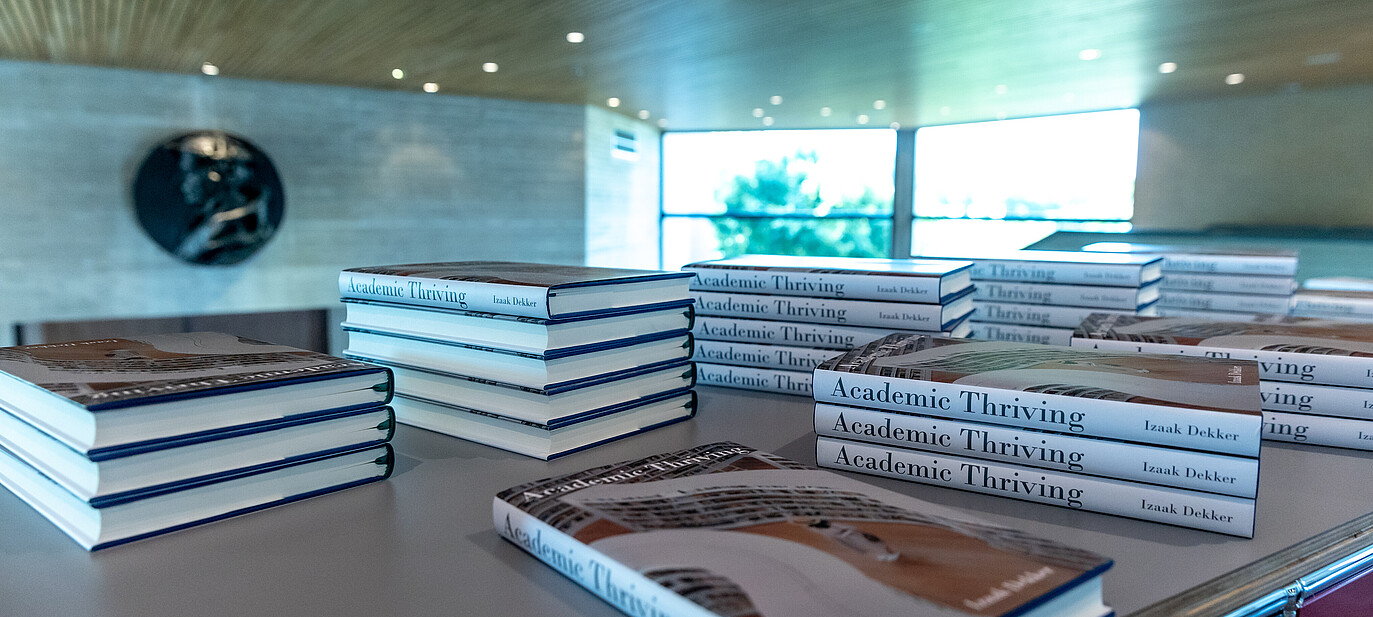
RSM Part-time PhD Programme
This PhD thesis has sprung from the Part-time PhD Programme at the Rotterdam School of Management, Erasmus University (RSM). Part-time PhD candidates conduct research against the highest academic standards on topics with real-world application value, thereby contributing to the positive impact of RSM research on business and other societal stakeholders. This programme allows candidates to develop their academic and research skills while they work. During the five-year programme, candidates are trained in research methods, use RSM’s research facilities and databases, participate in international conferences, and are supervised by research active faculty.
Below you can find dissertations of RSM Part-time PhD candidates:
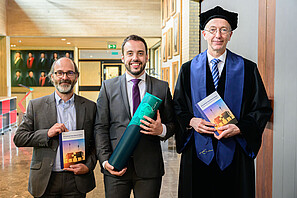
Cabana, G.,C. Unravelling Team Ethical Culture: The Existence, Relevance and Implications for Ethics Management , Supervisor: Prof. dr. S.P. Kaptein, Co-supervisor: Prof. dr. W. Vandekerckhove
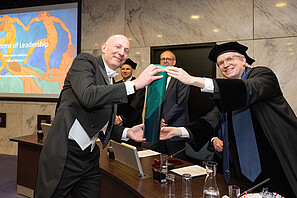
Mulder, F., New forms of leadership Leading in the plural and plural leadership, Supervisor: Prof. dr. S.R. Giessner, Co-supervisor: Prof. dr. B. Koene
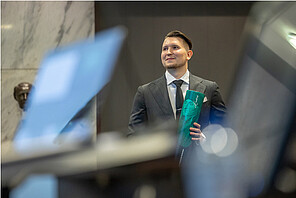
Goldsby, C. M., _Demystifying Digital Governance: Exploring the Mechanisms and Trade-offs of Blockchains for Organizations,_ Supervisor: Prof. dr. ir. J.C.M. van den Ende, Co-supervisor: Dr. H.J.D. Klapper
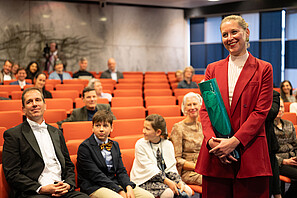
Isabel de Bruin Cardoso, E.W., _The Dark Side of the NGO Halo: Exploring moral goodness as a driver for NGO unethical behavior_, Supervisors: Prof. dr. S.P. Kaptein & Prof. dr. L.C.P.M. Meijs
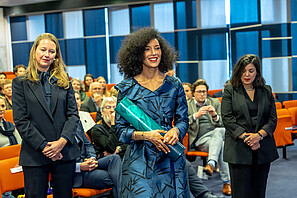
Ouacha, M., Receiving by Giving The examining of cross-border diasporic and bi-cultural Philanthropy, Supervisor: Prof.dr. L.C.P.M. Meijs, Co-supervisor: Dr. C.H. Biekart
Jakobs, K., ICT Standardisation Management: A multidimensional perspective on company participation in standardization committees, Supervisors: Prof.dr.ir. H.J. de Vries & Prof. K. Blind
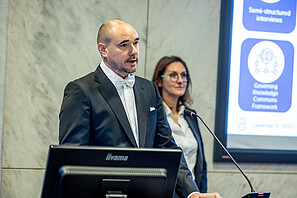
Carpentier, P.D.J. A New Frontier for the Study of the Commons
Promotors: Prof.dr. L.C.P.M. Meijs, Prof.dr. V.J.A. van de Vrande
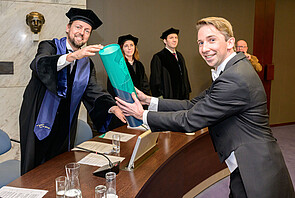
Reinders, H.J. Financial Stability in a Changing Environment
Promotors: Prof.dr. D. Schoenmaker, Prof.dr. M.A. van Dijk
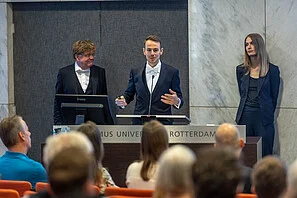
Dekker, I. Academic Thriving; Optimising Student Development with Evidence-Based Higher Education.
Promotors: Prof. dr. M.C. Schippers, Dr. E. Klatter & Dr. E.J. Van Schooten
https://pure.eur.nl/ws/portalfiles/portal/53684049/dissertatiemiddelenizaakdekker_6267af186ff73.pdf
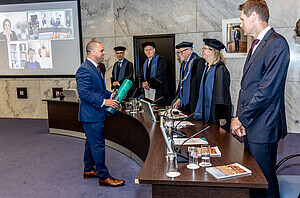
Heeren, J. Management Innovation in the Military, Practice Adaptation Processes and Innovation Performance Consequences Solving the Paradox Between Institutional Pressure, Rational Motivation and Implementation Misfit
Promotors: Prof.dr. H.W. Volberda, Prof.dr.ir. V.J.A. van de Vrande & Dr. E.J. de Waard
https://www.eur.nl/en/events/phd-defence-jwj-jasper-heeren-2022-04-22
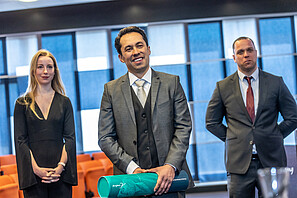
Caballero Santin, J.A. Stunted Innovation: How large incumbent companies fail in the era of supply chain digitalization.
Promotors: Prof.dr.ir. J.C.M. van den Ende, Dr. M. Stevens
https://pure.eur.nl/ws/portalfiles/portal/50170730/phd_dissertation_jaimereduced_620135877e60f.pdf
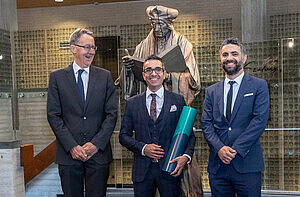
Renault, M. All for One and One for All: How Teams Adapt to Crises.
Promotors: Prof.dr. J.C.M. van den Ende & Dr. M. Tarakci
https://pure.eur.nl/ws/portalfiles/portal/50866956/max_thesisall_chapters_combined_and_preliminary_pagesfinal_embargo_621f67faca9ce.pdf
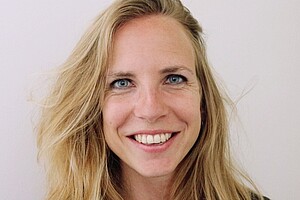
Duijm, P. On the Cyclical Nature of Finance: The role and impact of financial institutions, Promotor(s): Prof. D. Schoenmaker & Prof. W.B. Wagner, 1,
https://repub.eur.nl/pub/120767
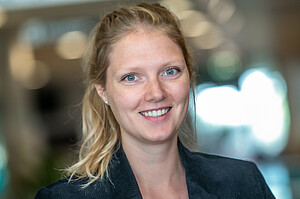
Maas, S.A. In the moment of giving: Essays on contemporary forms of private and corporate philanthropy. Promotors: Prof. L.C.P.M. Meijs & Prof. J.P. Cornelissen.
https://repub.eur.nl/pub/124976
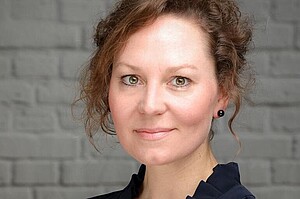
Langenbusch, C. A lot to lose. Organizational identity and emotions in institutional contexts. Promotors: Prof. J.P. Cornelissen, Prof. G. Jacobs. https://repub.eur.nl/pub/125099
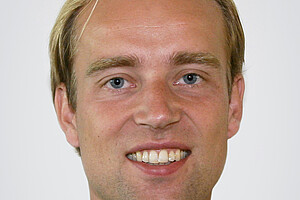
Van Zanten, J. A. Business in the Age of Sustainable Development https://repub.eur.nl/pub/135674
Profiles of Part-time Phd programme students
Patty Duijm - Cohort 2015
Topic: On the cyclical nature of finance: The role and impact of financial institutions
Supervisors: D. Schoenmaker (Dirk), W.B. Wagner (Wolf)
Author:
Patty Duijm started her part-time PhD in 2015, at the Finance Department at RSM. Alongside her PhD she worked as an Economist at the Financial Stability Division and subsequently at the Supervisory Policy Division of De Nederlandsche Bank. She has been involved in regulatory and international policy topics covering recovery and resolution, stress testing financial institutions, and macroprudential policy. Her research interests include the impact of policy reforms on financial institutions, international banking, investment behavior and risk diversification. She completed her PhD in 2019. Patty currently works at the Data Science Hub of De Nederlandsche Bank, aiming at getting most value out of the data by incorporating data science at central bank and supervisory practices. An overview of her publications and current research can be found here.
Project description:
Cyclical patterns are characterized by periods of strong economic expansions (‘booms’), followed by periods of detractions (‘busts’). In finance, we have seen these boom-bust cycles occur in, for example, the equity, credit and housing markets. During the global financial crisis of 2007-2009, we have seen that periods of economic downturns intensified financial market disruptions, and vice versa. The existence of these cycles that are closely linked to financial crises and that can intensify each other calls for a better understanding of their underlying mechanisms.

Stephanie Koolen-Maas - Cohort 2019
Topic: In the Moment of Giving. Essays on contemporary forms of private and corporate philanthropy
Supervisors: L.C.P.M. Meijs (Lucas), J.P. Cornelissen (Joep)
Author:
Stephanie Koolen-Maas started her PhD in 2015 at the Business-Society Management Department at RSM. She worked as an academic researcher and lecturer for the same department alongside her PhD. Stephanie’s research interests include the societal role of organizations, philanthropy, nonprofit and volunteer management, and business-nonprofit relationships. After completing her PhD in 2020, she started to work as a postdoctoral researcher at the Centre for Philanthropic Studies at the Vrije Universiteit Amsterdam. She also continued to work for the Business-Society Management Department at RSM as a postdoctoral researcher and lecturer. She is currently associated with Impact Centre Erasmus as a senior impact researcher. Her ultimate goal is to better understand and increase the societal impact of philanthropy and philanthropic, hybrid and commercial organizations.
Project description:
No part of the philanthropic landscape appears to be as diverse as the ways in which individuals and for-profit organizations seek to do good. While philanthropy is not a new phenomenon, its diversification of practices and the emergence of (third party) organizations and new vehicles call for a renewed understanding. The studies in this dissertation represent a more in-depth exploration of contemporary forms of private and corporate philanthropy. First, I examine temporary episodic volunteering by examining National Days of Service. National Days of Service are state- or countrywide volunteering programs in which individuals and groups support nonprofit organizations by giving their time to a one-day, time-limited volunteer project. In the first two studies, I show how nonprofit organizations integrate National Days of Service and how they can do so more meaningfully. Second, I examine two vehicles that channel important elements of corporate philanthropy and that stand between corporate donors and nonprofit recipients. These include a corporate foundation serving the interests of multiple corporate donors simultaneously (collective corporate foundation) and third-party intermediary organizations. In the last two studies, I demonstrate how these two channels of corporate philanthropy add value and what the consequences are for corporate donors and nonprofit recipients.

Christina Langenbusch - Cohort 2015
Topic: A lot to lose Organizational identity and emotions in institutional contexts
Supervisors: J.P. Cornelissen (Joep), G. Belschak-Jacobs (Gabriele)
Author:
Christina Langenbusch is a senior organizational developer whose dissertation research focused on the qualitative analysis of organizational life at the intersection of global crisis management, organizational identity, sensemaking in the context of the grand challenge of forced displacement, emotions in institutions, and the process of theory development. Christina is currently researching quantitative evaluations of group behavior by translating organizational culture into a data-driven tool for leadership and change processes in the context of technology adoption. In addition to her work as an organizational developer and researcher, she continues to coach master's students. Christina has been awarded the 1st prize of the 2021 EDAMBA thesis competition.
Project description:
Organizational life entails complex, informal processes that can defi ne an organization just as much as its basic operational premises. To investigate these phenomena, this dissertation begins with a systematic literature review that critically investigates how the formation and strength of an organization’s identity is associated with value creation, providing a multi-level and multi-theory framework.

Anton van Zanten - Cohort 2016
Topic: Business in the Age of Sustainable Development
Supervisors: Prof.dr. R. van Tulder, Dr. F. Wijen
Author:
Jan Anton van Zanten works at Robeco, an international asset manager specialized in sustainable investing, as Strategist for the Sustainable Development Goals. He was awarded his PhD with distinction (cum laude) in 2021. He had joined the part-time PhD programme in 2017 at RSM's Business-Society Management department. His research interests center around corporate sustainability, sustainable development, and sustainable investing. Prior to joining Robeco, Jan Anton was a Senior Consultant at Steward Redqueen, and a Consultant at the United Nations Environment Programme. Jan Anton holds a Master’s in Global Business & Stakeholder Management from Erasmus University Rotterdam and a Master’s in Development Studies from the University of Cambridge.
Project description:
This dissertation contains five studies that investigate the role of companies in achieving the Sustainable Development Goals (SDGs). The first study builds on institutional theory to develop propositions that explain how corporate engagement with SDGs is influenced by traits of SDGs and by traits of companies. The second study conducts a systematic literature review to survey and synthesize the positive and negative impacts of diverse corporate activities on the SDGs and their underlying targets. In study three, corporate impacts on the SDGs are investigated using network analysis. This allows for identifying four types of companies, each having a unique sustainability imperative. The fourth study then asks how companies might improve their impacts on the SDGs, thereby contributing to developing a theory of sustainability management. This conceptual paper that is grounded in the sustainability sciences literature introduces a nexus approach to corporate sustainability. This nexus approach induces companies to manage their positive and negative, and direct and indirect, interactions with the SDGs in order to advance multiple SDGs simultaneously (“co-benefits”) while reducing the risk that contributions to one SDG undermine progress on another (“trade-offs”). Finally, the fifth study reflects on how the SDGs can help transform towards more sustainable societies throughout, and beyond, the COVID-19 pandemic.

